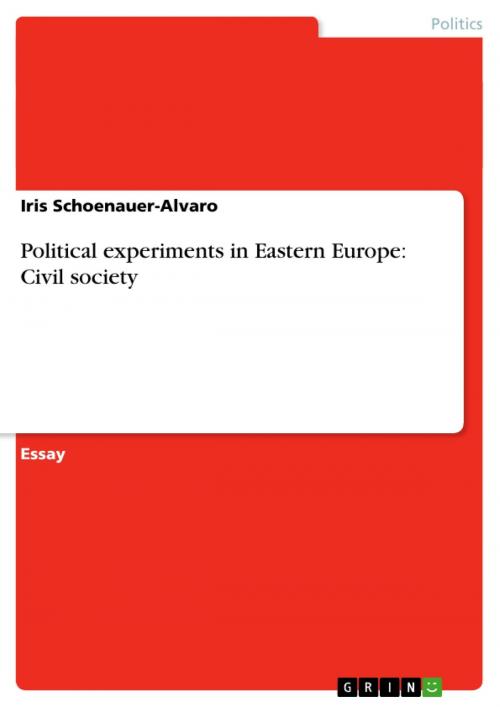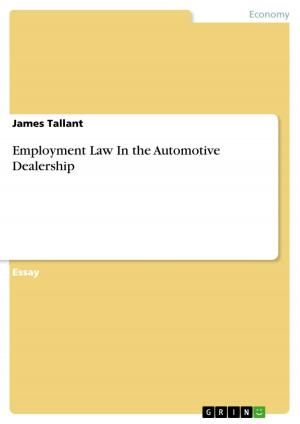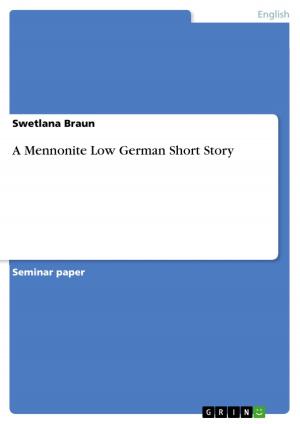Political experiments in Eastern Europe: Civil society
Nonfiction, Social & Cultural Studies, Political Science, International, International Relations| Author: | Iris Schoenauer-Alvaro | ISBN: | 9783640130740 |
| Publisher: | GRIN Publishing | Publication: | August 5, 2008 |
| Imprint: | GRIN Publishing | Language: | English |
| Author: | Iris Schoenauer-Alvaro |
| ISBN: | 9783640130740 |
| Publisher: | GRIN Publishing |
| Publication: | August 5, 2008 |
| Imprint: | GRIN Publishing |
| Language: | English |
Essay from the year 2003 in the subject Politics - International Politics - Region: Eastern Europe, grade: Honours, Dublin City University, 24 entries in the bibliography, language: English, abstract: Despite the fact that during the recent Hungarian plebiscite regarding the country's accession to the European Union (EU) 83.76 per cent of the votes were in favour of joining the EU, the low election turnout of only 44.13 per cent of all Hungarians entitled to vote was considered 'shameful'; an important political and economic decision has been taken with the official approval of only two fifth of the eight million Hungarians with voting rights.1 This and other somewhat disappointing examples raise the question of how committed Eastern Europeans are in terms of forging their own post-communist future. This paper will attempt to analyse the role civil society has played in the democratisation process of the region since 1989. As effects can generally only be properly assessed with a mid- or even long-term perspective, looking at isolated events, which took place during the last slightly more than thirteen years, does not suffice to come to a reliable conclusion about the strength or weakness of civil society. For this reason, I will focus in my analysis on tendencies and their possible historical explanation; where possible, survey data will be provided which should facilitate a broader understanding of current trends. Since - due to the individual countries' very distinct historical characteristics - in many instances it does not seem appropriate to evaluate 'Eastern European civil societies' as a whole, I will adopt Attila Ágh's model differentiating at times between 'East Central European (ECE) civil society' (Poland, Czech Republic, Slovakia, Hungary, Slovenia, Croatia) and 'the Balkans civil society' (Bulgaria, Romania, Serbia, Macedonia, Albania, Bosnia) taking into consideration regional similarities (Ágh, 1998: 5). The structure of this paper will be as follows: Firstly, I will look at the concepts of civil society in general, post-communist civil society in particular as well as democratisation in Eastern Europe. This will be followed by an examination of two areas, which tend to be closely associated with civil society: the strength of civic associations in terms of density and intensity as well as the relationship between civic associations and political institutions; the second area includes an evaluation of the concept of trust. Lastly, I will offer a general judgement as to whether I think that the civil society of the region can rightly be considered 'the great disappointment of post-communist democratisation'.
Essay from the year 2003 in the subject Politics - International Politics - Region: Eastern Europe, grade: Honours, Dublin City University, 24 entries in the bibliography, language: English, abstract: Despite the fact that during the recent Hungarian plebiscite regarding the country's accession to the European Union (EU) 83.76 per cent of the votes were in favour of joining the EU, the low election turnout of only 44.13 per cent of all Hungarians entitled to vote was considered 'shameful'; an important political and economic decision has been taken with the official approval of only two fifth of the eight million Hungarians with voting rights.1 This and other somewhat disappointing examples raise the question of how committed Eastern Europeans are in terms of forging their own post-communist future. This paper will attempt to analyse the role civil society has played in the democratisation process of the region since 1989. As effects can generally only be properly assessed with a mid- or even long-term perspective, looking at isolated events, which took place during the last slightly more than thirteen years, does not suffice to come to a reliable conclusion about the strength or weakness of civil society. For this reason, I will focus in my analysis on tendencies and their possible historical explanation; where possible, survey data will be provided which should facilitate a broader understanding of current trends. Since - due to the individual countries' very distinct historical characteristics - in many instances it does not seem appropriate to evaluate 'Eastern European civil societies' as a whole, I will adopt Attila Ágh's model differentiating at times between 'East Central European (ECE) civil society' (Poland, Czech Republic, Slovakia, Hungary, Slovenia, Croatia) and 'the Balkans civil society' (Bulgaria, Romania, Serbia, Macedonia, Albania, Bosnia) taking into consideration regional similarities (Ágh, 1998: 5). The structure of this paper will be as follows: Firstly, I will look at the concepts of civil society in general, post-communist civil society in particular as well as democratisation in Eastern Europe. This will be followed by an examination of two areas, which tend to be closely associated with civil society: the strength of civic associations in terms of density and intensity as well as the relationship between civic associations and political institutions; the second area includes an evaluation of the concept of trust. Lastly, I will offer a general judgement as to whether I think that the civil society of the region can rightly be considered 'the great disappointment of post-communist democratisation'.















